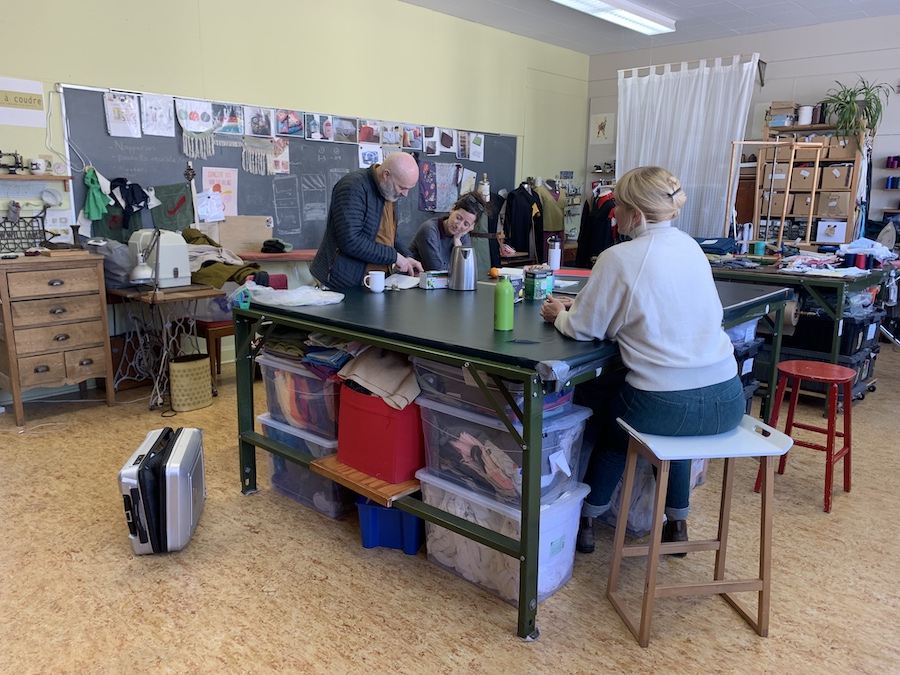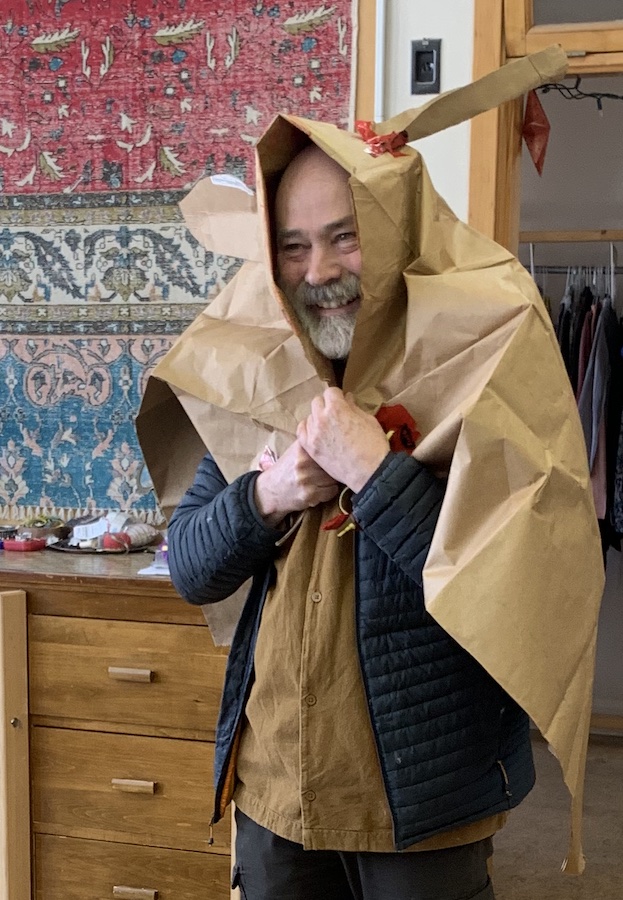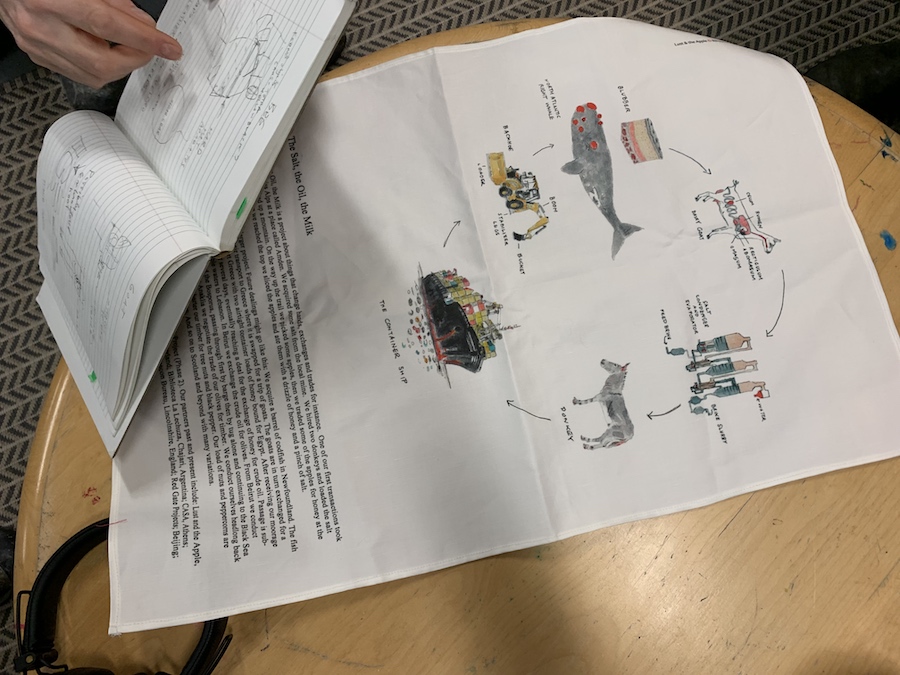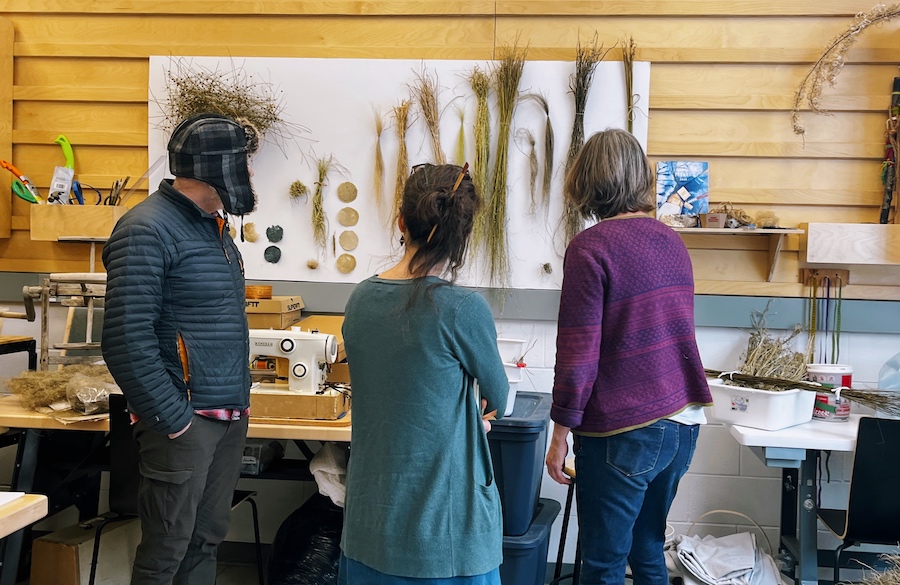Gentiane Bélanger, Noémie Fortin & Camila Vásquez —
February, 2023
From February 6 to 10, 2023, the ArtLab welcomed artist Bill Burns for a second visit. After a first stay in residence during which he explored the area and various local agricultural projects, Burns was now setting out to meet other artists in search of prospective work partners.
Finding collaborators is integral to his process. Certain aspects from previous iterations of his project The Country Singer, the Salt, the Milk, the Goats — for example, brass band music — have been revisited, while new forms of artistic expression like costume have emerged. The meetings scheduled for this residency were therefore aimed at creating opportunities for exchange with artists working in these disciplines.
Costume designer Pascale Déry, founder of the community sewing workshop Moulin à coudre, welcomed the artist and curators to her Waterville studio. Armed with sketches and maquettes, Burns laid out his ideas for his proposed donkey, bee and goat costumes and donkey/goat/human harnesses. Long discussions about the best materials and fasteners ensued. As an expression of cross-species empathy, Burns wants to have participants wear the costumes and harnesses during a public performance, after which they will be added to the exhibition in which the project culminates.
Burns also met with tuba player, trombonist and all-round musician Étienne Leclerc. Leclerc plays with the Ze Radcliffe Fanfare, a Sherbrooke-based group whose renditions of international folk tunes are strongly flavoured with brass, banjo and accordion. After a long discussion about Balkan and Eastern Europe music, rhythms and melodies as well as tours, parades and marches, both artists expressed their eagerness to collaborate.
The next meeting was with Regine Neumann, a professor in Bishop’s fine arts department, who shared her passion for natural fibres and the immense creative potential of using plants found right on campus. She introduced the department’s Fab Lab (Fine Arts Digital Fabrication Collaborative Learning Lab), showing samples of linen at various stages of the spinning process. Also invited was Candace Herring, the Bishops theatre department’s costume designer and production manager, who presented some costumes-in-progress along with pieces from the university’s collection.
The notions of exchange, trade and gift are intrinsic to the project. Strongly inspired by previous residencies in the Yukon, where he had a chance to meet and learn from elders of the Tr’ondëk Hwëch’in nation, Burns has adopted the custom of offering a gift to people he meets for the first time. Instead of the traditional muktuk—a dish made of whale skin and blubber—Burns presented each artist with a textile work: a print on cotton describing the exchanges central to an earlier iteration of the project that revolved around using barter as a means of communication and travel.
A vital part of Burns’ sharing process is the oral transmission of his artistic vision and the theories on which it is based. Through his various stories (personal narrative, descriptions of previous projects, travel stories, historical facts and art history anecdotes), he sets out to meet the other and extend an invitation to be part of his creative process.




